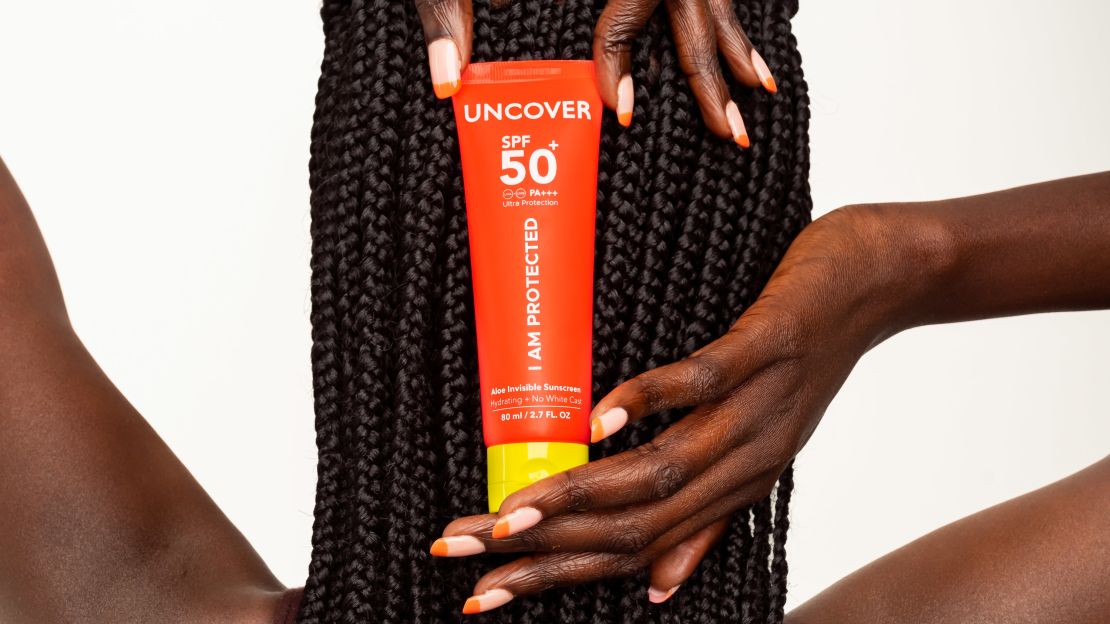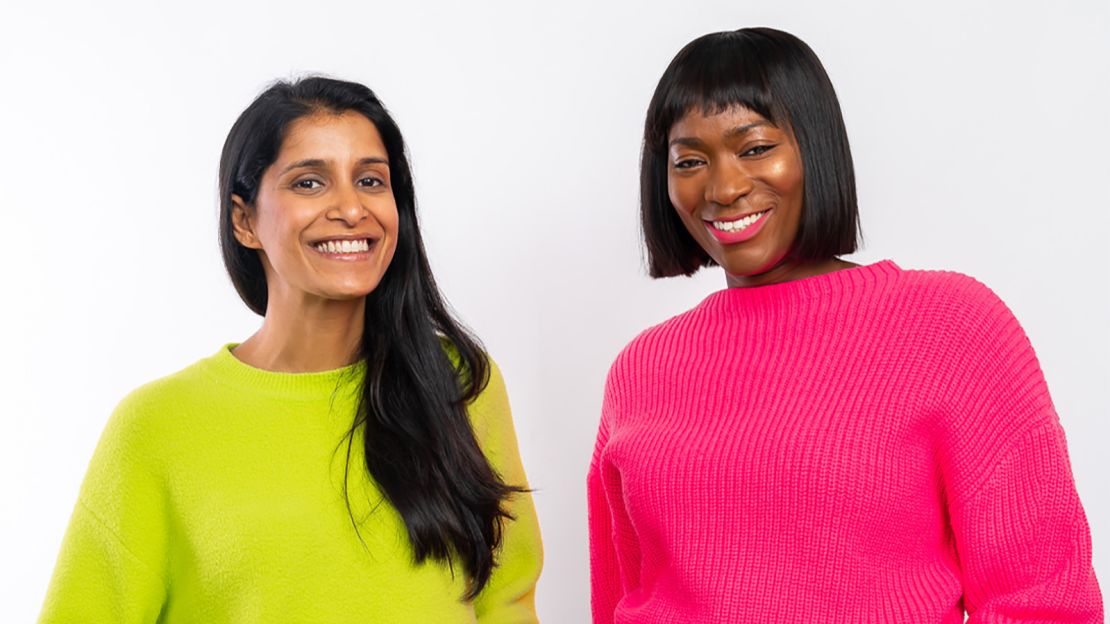In Africa, demand for beauty and personal care is growing fast but there’s still a gap in what’s available for consumers. Fake cosmetics and skin-whitening products can put consumers at risk, while the global brands that import to the continent are often expensive and not tailored towards Black skin.
Uncover – a startup founded by three women in Kenya in 2020 – wants this to change. It has developed a range of cosmetics that serve the needs of African women, says Sneha Mehta, the company’s CEO and co-founder. With each product tried and tested by focus groups in either Kenya or Nigeria (where the startup is currently active), she says it has a high chance of creating something that’s popular in the African market.
For instance, Uncover’s sunscreen, one of its best-selling products. Jade Oyateru, the startup’s COO and co-founder, explains that while demand for sunscreen is growing among African women, they often complain that it leaves a ghostly white layer on their skin. Uncover responded by formulating a hydrating and fast-absorbing sunscreen that doesn’t leave a white cast, she says.
The African identity carries through to the product’s ingredients, with each one containing a plant grown on the continent. The sunscreen includes cooling aloe vera, while the vitamin C serum uses baobab that helps to reduce redness and the toner has rooibos leaf extract that is said to be anti-ageing.
Currently, Uncover’s products are manufactured in laboratories in South Korea, a world leader in beauty technology. Mehta says that in the next 10 years, she would love to start manufacturing in Africa, but currently the infrastructure is not up to standard and she doesn’t want to compromise on quality.

According to Technavio, a global market research firm, Africa’s beauty and personal care market is expected to grow by more than $5 billion from 2021 to 2026. This potential has attracted global players such as L’Oréal and Rihanna’s Fenty Beauty to sell on the continent, but their products are still predominantly focused on Western markets, says Mehta.
Rubab Abdoola, a consultant at Euromonitor International, which has also carried out research into Africa’s beauty industry, believes that developing skincare products for African consumers will help homegrown brands like Uncover differentiate themselves from global cosmetic giants.
“Although multinational brands still have a strong reputation on the continent and are perceived as being a status symbol in some cases, very often one of the complaints that consumers have is that these companies do not have products that have been developed by taking into account the skin of the African woman and the African climate,” she says.
Pan-African skincare
Urbanization and a young population are some of main drivers behind the booming African beauty market, but there is still a big gap in knowledge, says Uncover’s Oyateru. “Women know that they want to get into skincare and beauty and cosmetics, but they struggle to find the right products and the right information,” she says.

Uncover hopes to help solve this through digital tools on its website and engaging social content. Consumers can book virtual consultations with an in-house aesthetician and there is also a free skin quiz on the site, which can recommend products and nutrition tips based on a few questions.
The quiz provides useful marketing information. “Based on the data we’ve been able to collect, we understand women who have acne-prone skin, we understand women who have dry skin, and the kinds of products they buy,” says Oyateru, adding that the company tailors email newsletters towards skin types.
So far, this method seems to be working. Since 2020, Uncover has amassed a digital audience of more than 170,000 and raised $1.5 million in funding. While it is focusing its attention on Kenya and Nigeria it has also seen demand from other African countries, as well as diaspora communities across the world.
In the next two to five years, the startup will look to expand into other countries such as South Africa and Ghana, says Oyateru, with the aim of becoming a pan-African brand. The long-term mission is to change beauty standards across the continent.
Our products don’t just “address how you look, but (also) how you feel,” says Mehta. “We’re building a brand … to ensure that anyone – whether it’s a woman of color, somebody with acne or somebody with hyperpigmentation – loves the skin they’re in.”













